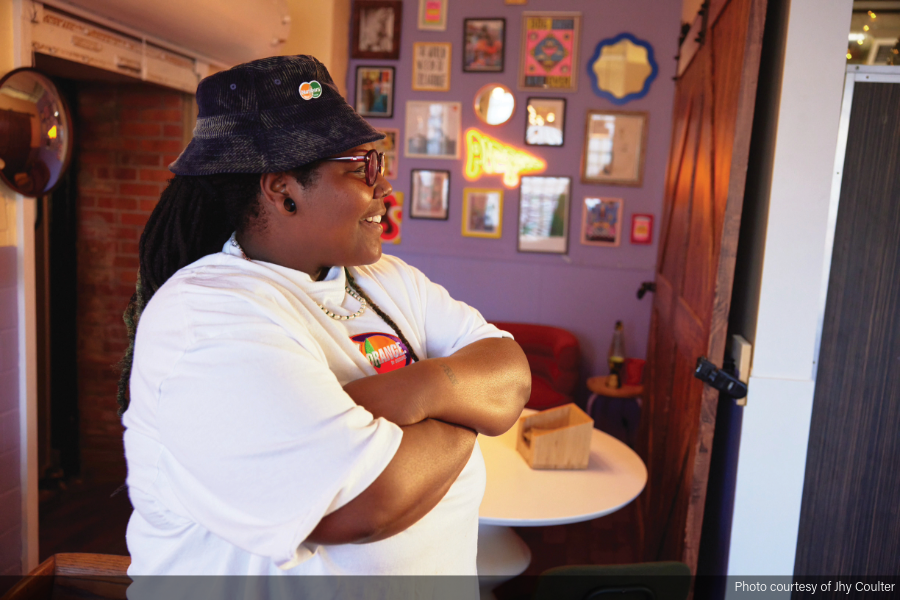Get a grip on financials now, thank yourself later

Let’s talk financials.
For 33 years in this business, I have always maintained up-to-date financial reports. I use these reports to manage my pizzerias, but I am fortunate to have and understand how to use them in the first place. You see, I was forced to maintain accurate financials by two mentors in the business, and that experience has benefited me greatly.
My first mentor was Tom Monaghan, the founder of Domino’s Pizza. Tom’s system for his franchisees included a nightly call-in with food and labor numbers. The managers did a full inventory every day and calculated daily food and labor cost. Each month the franchise owner reviewed the profit & loss statements (P&Ls) with the manager and paid out a bonus based on results.
I moved to Rusty’s Pizza in 1987, where my second mentor, founder Roger Duncan, took up the baton. Every Monday, Roger had each manager do a full inventory and sales analysis, including food and labor cost. Every month, he had me review the P&Ls with each manager and pay a bonus based on results. Roger’s favorite saying is this: “Sales are made in the pizzeria. Profits are made in the office.”
See the pattern?
I was lucky these two men guided me to an understanding of financials. Let’s get you there as well. In order to do that, there are two hurdles you must first get over: how and why.
To address the first hurdle, I say ‘why not?’ Why do some independent pizzeria operators not maintain financials? Simply this: they are not looking to the future, so they do not see the need to maintain accurate records. Receipts for purchases get lost and sales are not accurately entered. The resulting financials cannot be used for current management or for future growth. Trust me. If you don’t pay now, you will pay later. Accurate sales and cost records are the price you pay for admission to what I call ‘The Game.’
Let’s take a look at hurdle number 1, the “why.”
- Bankers: To borrow money for growth, you have to show a minimum of two years of good financials.
- Landlords: To get exceptional locations (location, location, location) those same good financials give you the edge against the ‘big boys’ competing for that space.
- The Government (a.k.a. The Man): As you grow, you will be under more scrutiny. The Man loves accurate financials, and offers great incentives on your tax return.
- Profit: Good financials allow you to manage labor and food costs as well as utility, maintenance and remodel costs. Unfailingly, I have seen a minimum of five percent (of sales) improvement in costs when accurate financials are added to a pizzeria’s operational toolbox. On $500,000 in sales, that is $25,000 in your pocket at the end of the year.
- Employees: When managers’ goals are set based on their ability to understand financials, they blossom. They understand how to lead the employees to accomplish food and labor goals each day.
- Your accountant: Your tax pro can’t do your taxes correctly if you are not providing all of the information. There are legitimate expenses you may be missing.
So we now arrive at the second hurdle — the “how.”
 There are many paths to success with financials. Here are my players.
There are many paths to success with financials. Here are my players.
- The Manager: Every Monday, the manager of the pizzeria spends six hours doing weekly paperwork. This begins with an inventory of every item in the restaurant, followed by creating the weekly food order. They complete the daily paperwork, then a weekly sales report showing weekly totals of sales, credit card deposits, bank deposits and cash paid outs. Next is the “cost analysis worksheet.” Food and labor numbers are compared to sales. Sales are compared to last year, last month and last week. Every two weeks a payroll report is created. Once per month, a month-end inventory is created.
- Pre-bookkeeper: All of the manager’s work comes to this person. He sorts the paperwork as follows: Payroll to the payroll company. Placing weekly food orders to the various vendors. Invoices and weekly sales reports to the bookkeeper. Fundraising and donations to the marketing person. Cost analysis worksheets to me.
- Payroll: We use an outside company. There is too much legality to do internally.
- Bookkeeper: The bookkeeper enters all the manager numbers and inputs all invoices using QuickBooks. Each week, all the checks are attached to invoices ready for my review and signature. Monthly P&L statements are prepared by location and monthly bank reconciliations are completed. Monthly and quarterly, sales tax returns are filed.
- Accountant: A professional who reviews the financials quarterly, including the balance sheet, and prepares the tax returns annually.
- Me: I review the monthly P&L statements and provide corrections to the bookkeeper. I review the P&Ls with the managers and pay bonuses based on results.
I have seen many owners make money but who are not able to grow their business because they were lacking good financials. Are you ready to play The Game? Remember my mentor Roger Duncan’s adage: “Sales are made in the stores; profits are made in the office.”
Dan Collier is the founder of Pizza Man Dan’s in California and a speaker at International Pizza Expo.






